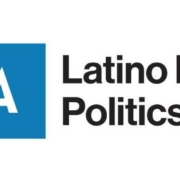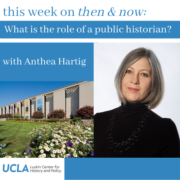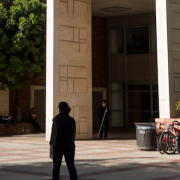UCLA Professor Eric Avila Discusses Infrastructure and Racial Equity with The New York Times and NPR
 Dr. Eric Avila, UCLA Professor of History, Chicana/o and Central American Studies, and Urban Planning, was recently featured in The New York Times and NPR to discuss infrastructure and racial equity in light of President Biden’s new plan, which seeks to address racial disparities.
Dr. Eric Avila, UCLA Professor of History, Chicana/o and Central American Studies, and Urban Planning, was recently featured in The New York Times and NPR to discuss infrastructure and racial equity in light of President Biden’s new plan, which seeks to address racial disparities.
In The New York Times, Dr. Avila discusses how federal redevelopment programs negatively affected and excluded minority communities. “‘These highways were essentially built as conduits for wealth,’ Mr. Avila said. ‘Primarily white wealth, jobs, people, markets. The highways were built to promote the connectivity between suburbs and cities. The people that were left out were urban minorities. African Americans, immigrants, Latinos.'”
To read the NYT article, click HERE.
With NPR, Dr. Avila expands further on the impact of highway construction: “It destroyed many communities, and it destroyed the economic, social and cultural lifeblood of these communities. It also divided them, creating these huge barriers within communities or between communities. The best example I can think of in Los Angeles is the Boyle Heights neighborhood. You could imagine an army of bulldozers and wrecking balls invading Boyle Heights to clear neighborhoods to build these massive freeway interchanges that have a huge footprint upon what used to be racially and ethnically diverse working class, sustainable communities. But the freeways and their interchanges destroyed that. And that happened on a national pattern throughout the United States.”
To read or listen to the NPR “For All Things Considered” interview, click HERE.









